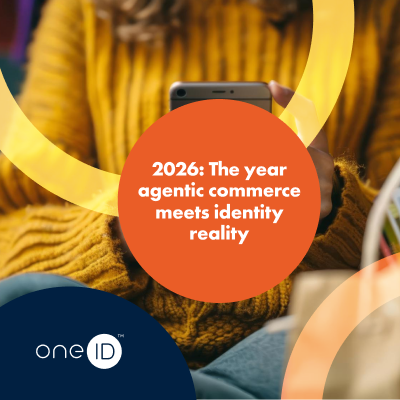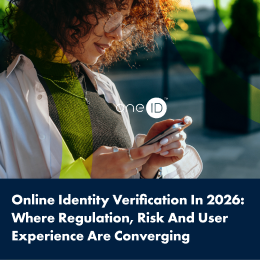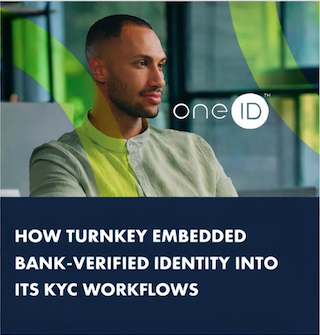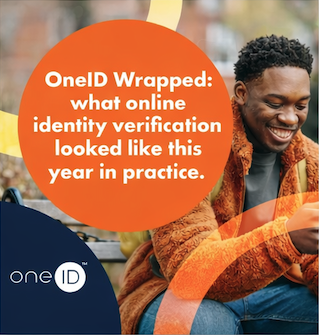At the beginning of 2022 the Home Office announced new supermarket age verification technology trials at numerous stores including Asda, Co-op and Morrisons sites. With customer consent, the new technology will guess age, using cameras and algorithms trained on a database of anonymous faces.
Addressing privacy concerns, the company behind the tech explained the process is not facial recognition, which tries to match individual faces to those on a database. Further, the system will not retain the images it takes.
Tested on more than 125,000 faces aged 6 to 60, the algorithm, on average, guessed age accurately to within 2.2 years - 1.5 years among 16-20-year-olds.
The goal is clearly to prevent age-restricted items like alcohol being sold to children. Strengthening measures to do so as well as relieving some of the stress on employees is necessary and welcomed, but what about online?
It’s safe to say there would be outrage if supermarkets weren’t checking the ID of young people buying alcohol, knives, or dangerous substances. And the effectiveness of this new age verification tech has already come into question – will it successfully identify all those under 18? Yet online, it is as easy as ever for children to access age restricted items.
New rules came into force just this month as additions to the Offensive Weapons Act 2019. The rules place more responsibility on retailers during the online sale and delivery of knives and corrosives to make sure the person receiving the online order has been verified as over 18.
Similarly, the Online Safety Bill has recently been strengthened to cover age verification on adult content sites. And towards the end of 2021 the grace period for complying with the Age Appropriate Design Code came to an end, meaning companies without appropriate safeguards to protect underage customers could be fined up to £17.5 million.
But the same is yet to be suggested for retailers selling age restricted goods like alcohol. Current age checks include self-check boxes or date of birth self-entry, and studies show children are successfully buying items they shouldn’t be able to.
Proactively implementing new age check methods in line with these new rules would help businesses in the long run, says Iain Corby, Executive Director of the Age Verification Provider’s Association (AVPA), “Take the Offensive Weapons Act, for example, new provisions will create big challenges for retailers selling goods such as knives and tools, or else face prosecution. Retailers in other age-restricted industries should take note and recognise that taking action to protect underage customers now may help to avoid the introduction of such rigorous regulations in their own industries and the resultant cost impact to their business model”.
The tech to combat this problem already exists and is even simpler than the new tech being trialled by physical stores. So, the question remains: why are online retailers not using it, and more importantly, why is no one asking them to?
Accurate age data already exists, held by banks about their customers. And a digital identity solution, utilising digital banking, exists that enables individuals to use that data to prove their age online.
In countries such as Sweden, Finland and the Netherlands, adoption of e-IDs is reaching an all-time high. The benefit of using banking tech to let people prove their age online is that it can be done both quickly and securely; there doesn’t need to be a compromise.
Consumers simply log into their online or app-based banking, consent to share proof that they are the right age, and then continue with their purchase as usual. The check is completed in real time, giving businesses a bank-verified answer to the question ‘is this person the correct age?’.
What’s more, this method of age verification minimises the data shared between parties. Online retailers who do check age comprehensively already usually do so via document uploads that give more personal information than is necessary. Through bank verification, a simple ‘yes’ or ‘no’ can be provided when businesses need to know if the user is the correct age. This doesn’t even require the date of birth to be shared, never mind photos of passports with even more precious data.
Some online retailers are already taking action and changing the way they check their customer’s age. Those who remain passive are missing out on protecting themselves, their reputation, and most importantly – protecting their customers.
So, the bigger issue remains: why is no one questioning these companies? Demanding they do something different? If a major supermarket chain were notoriously not checking the age of customers buying alcohol, parents would boycott it. Tony Allen, CEO and founder of Age Check Certification Scheme (ACCS) summed this up saying, “if it's illegal offline, it should be illegal online”.
It is thrilling to see new banking tech taking the lead in protecting children from harm, and it is great to see critical questions being asked of this new tech, but we should be maintaining the same level of energy when protecting those children online as well as offline, making solutions like these the default position.
Originally featured in the BRC's The Retailer magazine, May 2022.

Agentic commerce is already operating inside live retail, payments, and platform environments. For Partn...

Online identity verification entered a new phase in 2025. Across adult platforms, gambling, financial se...

Last month, we joined Turnkey for an industry event to talk about a challenge many regulated platforms a...

2025 has been a year of continued growth and real-world proof for OneID®. As expectations for identity a...